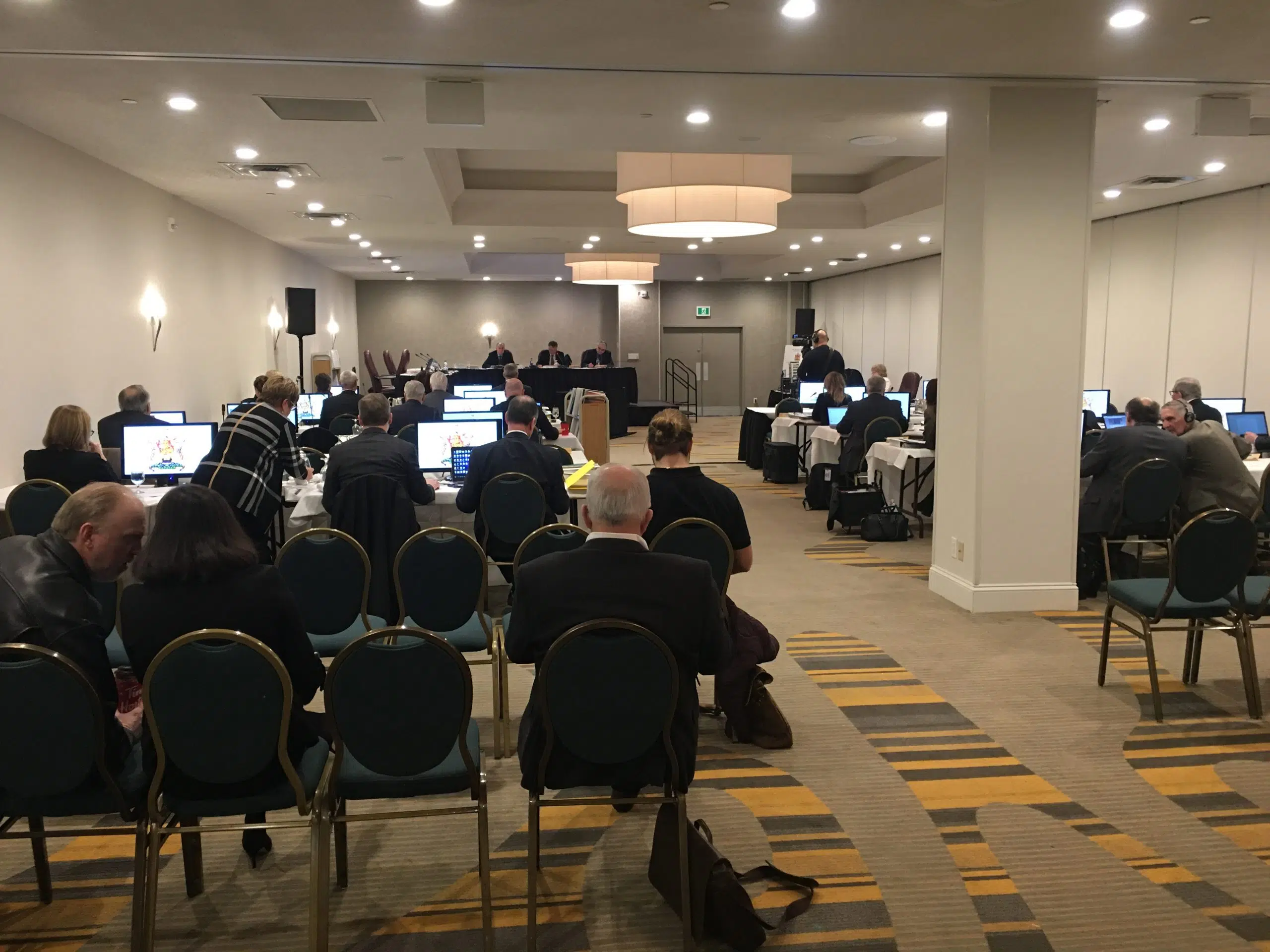
An eight-day hearing began on Jan. 13, 2020, to consider NB Power's business case for smart meters. (Photo: Brad Perry)
NB Power is trying once again to have smart meters rolled out to its customers across the province.
An eight-day hearing began Monday in front of the Energy and Utilities Board in Saint John.
It is the second time NB Power has sought approval for smart meters, also known as advanced metering infrastructure (AMI).
The EUB denied the previous application in 2018, saying it was “not in the public interest” and the utility failed to make a “positive business case.”
But Lori Clark, the senior vice-president of operations, said they have made improvements this time around.
“We took the feedback we received from this board during the AMI hearing in 2018 and we worked with a number of industry experts to explore potential savings and costs that we had not previously considered,” said Clark during opening comments Monday.
In its filing with the board, the utility said the $92-million project would produce net benefits of $31.1 million over 15 years.
Clark said there is no “do nothing” option and outlined three main drivers behind the utility’s proposal, including the rapid evolution of technology.

Lori Clark is the senior vice-president of operations for NB Power. (Photo: Brad Perry)
“We don’t want to be left behind, and more importantly, we don’t want our customers to be left behind,” she said, noting they expect the manufacturer of the meters they currently use will be phased out over time.
Utilities have been deploying smart meters for more than a decade and, according to Natural Resources Canada, they now account for more than 80 per cent of electricity metering in Canada.
Clark said customers would see many benefits to having the “modern and proven” technology.
“Once the smart meters and the surrounding communications network are installed and activated in an area, customers will have access to their energy usage information,” she said.
The utility is also studying a “high-bill alert” service to let customers know by email or text when their usage is trending higher than they might expect.
Officials said it would be similar to what cell phone companies do to let customers know when they have reached their data limit.
Clark said their proposal is built mainly on quantified benefits, but there are also many non-quantified benefits, which include knowing immediately when a customer’s power is out.
Another benefit, she said, is time-varying rates to shift power consumption away from peak demand.
“Time-varying rates are not part of this application and the utility currently has no plan to implement time-varying rates at this time,” said Clark.
If the smart meters are approved, the utility said customers would be able to opt-out. The projected cost for those customers would be about $4 a month based on an estimated two per cent of people opting out.
I’m at the Delta Brunswick in #SaintJohn, when the New Brunswick Energy and Utilities Board is beginning a hearing on NB Power’s smart meter proposal. pic.twitter.com/Yf0w2D9RkN
— Brad Perry (@BradMPerry) January 13, 2020




